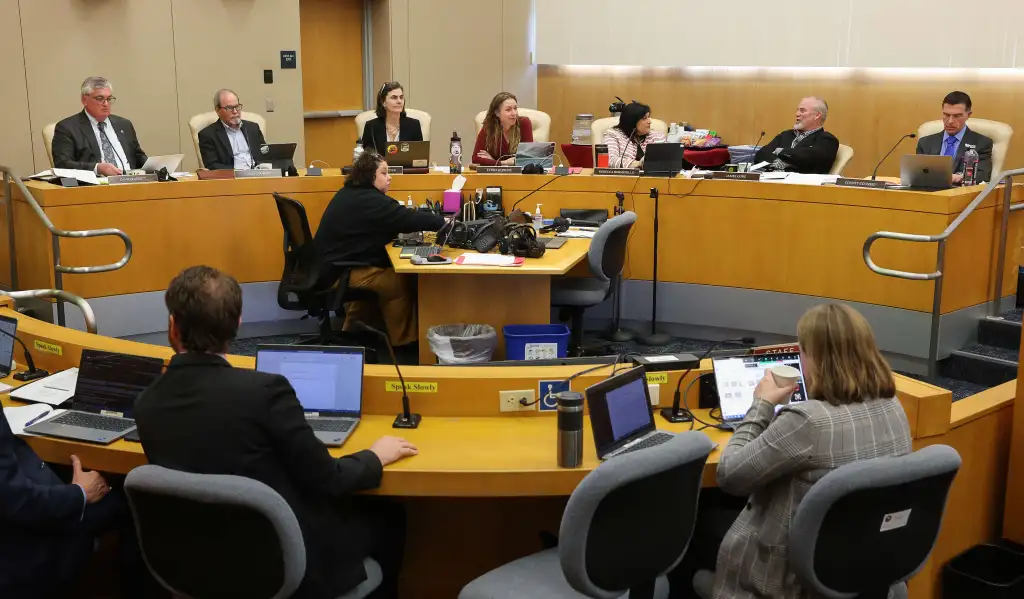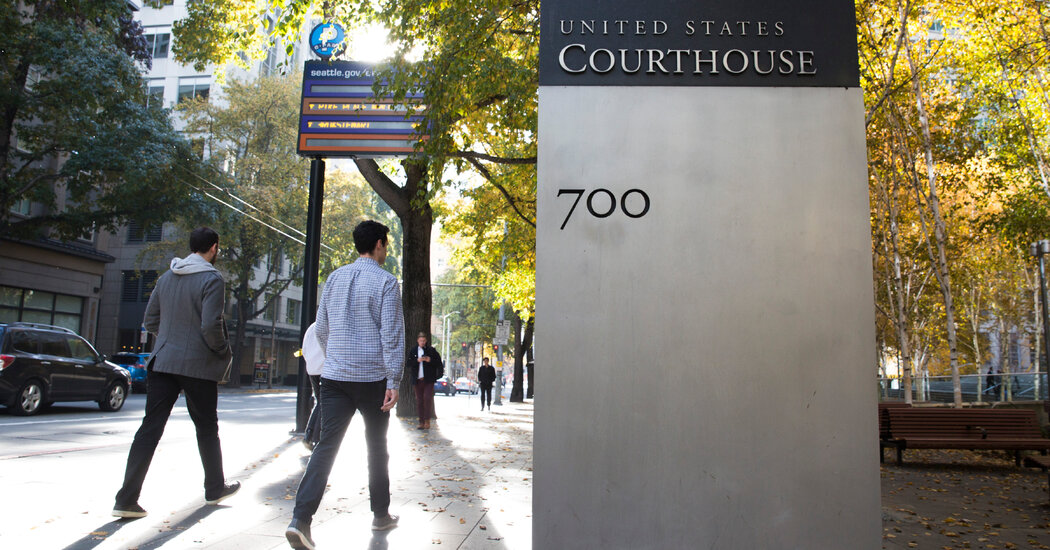Copyright Santa Rosa Press Democrat

Sonoma County’s highly anticipated overhaul of its ordinance regulating the cannabis industry arrived this week before the Board of Supervisors, where debate raised and settled for now a thorny question — whether commercial cannabis farming should be governed as agriculture. On Tuesday, a board majority endorsed that regulatory set up, over opposition from the region’s largest ag trade group, while also deciding on other rules governing commercial cannabis cultivation, sales and distribution outside city limits. The changes advanced by the board include defining cannabis as a form of controlled agriculture and classifying it as a prime crop making farmers eligible for tax breaks on their enrolled cropland. Going forward, the rules also would include cannabis in the county’s Right to Farm Ordinance, which is intended to protect and promote agriculture by prioritizing it on agriculture-zoned land. Tuesday’s discussion marked the culmination of the county’s multi-year effort to conduct an environmental review of its embattled cannabis regulations and subsequently revise rules after years of piecemeal tweaks failed to resolve a stalemate between the local industry and residents. While cannabis growers argued red tape and burdensome taxes have throttled their legal industry, residents countered the county needs to do more to protect neighborhoods from the impacts — including noise, odor and traffic — from nearby cannabis farms. Another round of contentious debate and hours of public comment Tuesday made clear neither side has softened since the county launched the environmental review in 2021. “Today, you have the opportunity to reveal which people you see yourself representing in your work,” Anne Seeley, a Bennett Valley resident and member of Neighborhood Coalition Sonoma County, a volunteer network of residents critical of county cannabis regulations, told the board. Seeley was one of several Sonoma County residents who urged the board to vote down the proposed changes, arguing the regulations as written failed to address neighbor concerns. But local cannabis industry representatives pushed back. “Cannabis is ag, cannabis is part of ag land and ag land has smells and inconveniences, it has cow traffic, night harvests and loud tractors,” said Aaron Keefer, vice president of cannabis cultivation and production for Sonoma Hills Farm. Residents were not the only ones to oppose the proposed ordinance. Mike Martini, former Santa Rosa mayor who often represents local winery owners, and Dayna Ghirardelli, executive director for the Sonoma County Farm Bureau, asked the board not to reclassify cannabis as “controlled agriculture,” arguing that doing so would create ambiguity in the county’s land-use planning. Their comments echoed a letter the Farm Bureau sent to the Board of Supervisors on Monday, calling for the board to establish larger setbacks and restrict commercial cannabis production to commercial and industrial zones — calls in alignment with The Neighborhood Coalition’s ideal. “By attempting to define cannabis as an agricultural crop, even with the “controlled” modifier, the proposal forces an uncomfortable and incompatible use into our existing agricultural zones,” read the letter, signed by Ghirardelli and Farm Bureau President Pat Burns. The Farm Bureau’s stance shocked several cannabis business owners, including Erich Pearson, CEO of SPARC which has several dispensaries in Sonoma and Napa counties and a member of the bureau. The bureau had previously supported cannabis, Pearson said in an interview Tuesday. He called it “a slippery slope for the farm bureau” to change that now. The host of changes endorsed Tuesday by the board include rules that would: Redefine cannabis as “controlled agriculture.” Cannabis is currently treated as an agricultural product but regulated separately; the new label would carry its own standards. Allow cannabis events. Though previously prohibited, the new regulations would allow two different types of events: special events such as weddings where cannabis is incidental and cannabis events where cannabis is the focus. Both would require permits. Create a streamlined approval pathway for cannabis cultivation through a new program called “crop swaps.” The program would allow farmers to plant cannabis in place of previous crops so long as the cultivation uses the same amount of resources including water and does not require new infrastructure. Increase residential buffers to 1,000 feet from the proposed 600 feet. Residents urged the board to adopt larger setbacks in part because of concerns about the impact odor and beta-myrcene, a compound in cannabis plants residents worry could pose health risks. Apply the “Right to Farm” ordinance, which would shield compliant farms from nuisance complaints. Establish a minimum parcel size of 5-acres with a 10% maximum canopy in agriculture and resource zones. Many in the local cannabis industry still tout cannabis as the next frontier in the evolution of Sonoma County’s agricultural identity, though the boom foreseen nearly a decade ago when California voters legalized non-medical, adult-use of cannabis has not come to pass. Still, the region’s signature wine industry, cannabis boosters note, is sagging amid a global decline in wine sales and sharp drop in consumption among younger adults. “Family wineries are struggling, small farmers are squeezed and the next generation is barely holding on, yet when a new agricultural opportunity arises from this same soil we’re told it doesn’t belong here,” said Erin Gore founder and CEO of Garden Society, a cannabis business based in Cloverdale. “That’s not stewardship, that’s stagnation.” Her business has been a bone of contention among critics of the county’s cannabis regulations, who believe it poses a conflict of interest for Supervisor James Gore, who is her brother-in-law. James Gore, in an interview last week, said his relative’s business does not pose a conflict of interest because it is regulated through Cloverdale and does not have any county permits. The supervisor was present during Erin Gore’s comments but recused himself from the second half of Tuesday’s hearing focused on establishing caps for dispensaries and non-storefront retailers. Leading up to the hearing, James Gore faced public calls to recuse himself entirely from the hearing due to donations his now-suspended state Senate campaign received from cannabis business owners, including Pearson. California campaign finance law prevents elected officials from voting on a contract that would directly benefit a donor, but does not restrict elected officials when they are voting on an ordinance that affects the entire jurisdiction or a broad population. “Because it’s a general policy that’s affecting a broad industry it also affects the public generally in the same way so there’s probably no recusal required, unless the public official has an investment with a company within the industry,” said Sean McMorris, transparency, ethics and accountability program manager at the government watchdog group Common Cause California. He added that elected officials can still choose to recuse themselves to avoid any appearance of a conflict, even if they are not legally obligated to do so. Gore said he recused himself from the dispensary discussion out of an “abundance of caution.” By that point in the hearing, the board had taken a myriad of straw votes on various regulation changes including items that dispensary owners and distributors weighed in on during public comment. Their comments were largely focused on cannabis events and on-site sales for cultivators. Nancy Richardson, communications co-director for Neighborhood Coalition Sonoma County, questioned whether Gore’s presence during those comments muddied the waters. “It’s very difficult to be in the seat to have to police public comment,” Board Chair Lynda Hopkins said, addressing Richardson’s question about why dispensary owners were allowed to comment during the first part of the hearing. “That said, Supervisor Gore will not be deliberating.” The board is set to take a second, final vote to adopt the ordinance revisions in early December. You can reach Staff Writer Emma Murphy at 707-521-5228 or emma.murphy@pressdemocrat.com. On X @MurphReports.



